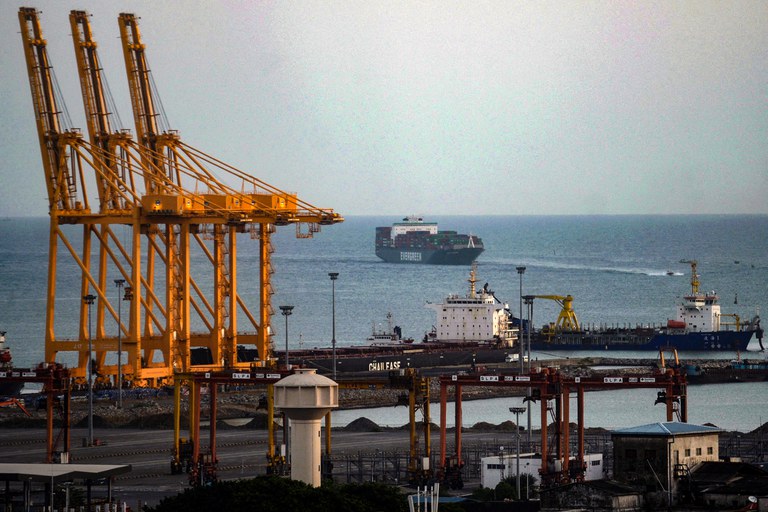They signed up at job fairs to work as carpenters, bricklayers, plumbers and painters at a housing project in the North African country of Algeria and were promised round-trip air fare, room and board, and better wages than they’d earned in China. They thought working for companies serving China’s flagship Belt and Road Initiative (BRI) was a safe bet. When the migrant workers from Sichuan, Shaanxi, Gansu, Henan, and Hebei–China’s relatively poorer inland provinces–arrived in the country, however, they soon found themselves living in sheds without air conditioning in desert heat and facing a nightmare of withheld wages, mysterious extra fees, confiscated passports, and dismal food. Many are trapped in Algeria. Chinese labor lawyers say their treatment not only besmirches China’s reputation, undermining the goals of the nearly 10-year-old Belt and Road Initiative (BRI) of infrastructure projects aimed at boosting Beijing’s global profile, but also constitutes human trafficking under international conventions China has signed. The BRI is seen as Chinese President Xi Jinping’s signature international policy. Following up on tips received from workers who’ve been stranded some 6,000 miles (9,200 km) from home, RFA Mandarin interviewed numerous workers employed in Algeria’s Souk Ahras Province, Chinese diplomats, labor lawyers and an executive of Shandong Jiaqiang Real Estate Co. Ltd, the eastern China-based company the laborers accuse of luring them to Algeria under false pretenses. “When I came here through an agent, I realized the situation is not good. It is worse than in China,” said Worker A, whose name has been withheld to protect him and his family from retaliation. “The contract is good for two years, and the pay listed on the contract is more than 10,000 yuan ($1,480) per month––between 15,000 ($2,220) and 20,000 yuan ($2,960). After landing here, I made less than 10,000 yuan ($1,480) a month,” he told RFA. “The pay is far from what was promised,” said a second man, identified as Worker B. “It is worse than what we earned in China. Here the monthly pay on average is 3,000 yuan ($444).” When he and fellow workers “arrived here and found out that the situation was far from ideal, we wanted to go home,” said Worker A. “We spoke with the company, and the company said ‘no.’ They said ‘Because you already signed the contract, if you go home now, that is a breach of contract.’” According to Worker A, Shandong Jiaqiang Real Estate Co. Ltd. told the workers to “ask your family to wire 28,000 yuan ($4,145) over to pay for the penalty. After you pay the penalty, then you can go home.” He told RFA wages were only paid every six months, with 70 percent paid, and the other 30 percent withheld until the workers fulfilled their two-year contracts. That pay arrangement meant the workers “usually have no money to live on” and had to borrow advances against their wages. “In the process, the workers were ripped off by other costs,” added Worker A, who said the company profited by loaning money to them at an exchange rate to the local Algerian Dinar currency that was about half the actual rate. A Chinese worker walks by a building at a construction site in Algeria’s Souk Ahras province. Credit: A Chinese worker. ‘Pig food’ and hot sheds Worker B said it took a strike by workers in September 2021 to get the company to pay the 70 percent they were due in the middle of that year. He said the workers were told by the company: “Feel free to sue. We’re not afraid. Just sue us, go back to China to sue us.” But a third worker involved in the dispute said that path was impossible for poor workers to take “The lawsuit costs money. To hire someone costs money. If you file a complaint in China, you’re dragging your family in too. Who can afford to sue? said Worker C. A chief reason the workers had to borrow money was to cook their own meals because the three daily meals they were promised under their contracts was inedible. “To say it bluntly, the food was worse than those given to pigs. Sometimes the food was just impossible to eat,” said Worker B. “In the winter, they gave you marinated cucumber salad or marinated tomatoes, plus two eggs per person. That’s it. Or two eggplants each person,” he said. “The food we ate was mixed with sand and gravel. The noodles were black,” added Worker B. “Workers in many construction sites that this company operates received the same treatment. Why? The company does not want to cook the food well, because if it’s delicious, you’d eat more. By offering lousy food, you’d pay out of pocket to buy your own food and cook your own meals,” Worker A surmised. The make matters worse, Worker A said, the workforce had to “live in regular sheds, with no air-conditioning, no matter how hot it is.” “In the summer, the temperature goes as high as 41 or 42 Celsius (105 or 107 Fahrenheit),” he added. Food provided to workers by Shandong Jiaqiang Real Estate Co. Ltd. ay its construction site in Algeria. Credit: A worker Overpriced plane tickets, improper visas Another grievance shared by the workers in Algeria who spoke to RFA in recent months was the failure to provide return airfare to China as promised. After checking with the Chinese Embassy in Algiers, workers who were trying to go home were told that tickets to China ran about 22,000 yuan. “The boss has told them that a flight ticket costs ¥42,000 yuan, and we have to pay our own ticket. He wanted us to pay by ourselves,” said Worker D. “It seemed that the ticket was around ¥22,000 yuan, and he charged you more than ¥30,000, said Worker E. “’Immigration clearance fee,’ they said,” he added. Worker D explained that because the company applied for business visas for the workers, when the workers return to China, they have to go through departure procedures at the…








